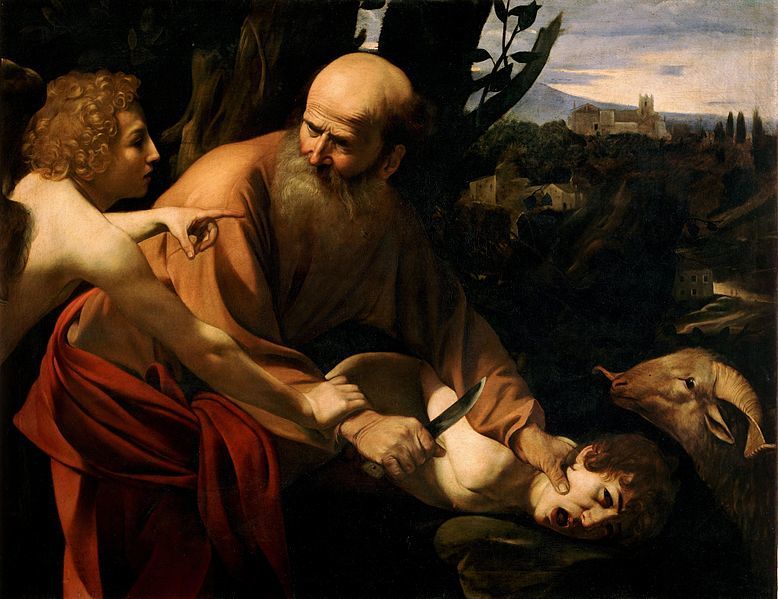Content Creation
Crisis, Climax, and Resolution: Story Elements for a Meaningful Ending
By Michael Box on April 24, 2017
Last night, I dreamed that my Facebook had disappeared. No matter what I tried, I couldn't recover it. The horror! When I woke up, I thought my dream had some inherent story elements so I decided to write a short story. Here's how it starts.
Fabio's Story
One morning, Fabio woke up and found that his Facebook account had disappeared. The discovery came immediately, since every morning-before doing anything else-he'd grab his smartphone and thumb through his Facebook feed.
At first, he found the app was missing. He reinstalled it, but when he entered his credentials, it didn't work. He tried the recovery options but that didn't work either. He called Facebook tech support.
"Thank you for calling Facebook User Operations. Unfortunately, we don't offer phone support at this time. Answers to most user inquiries-"
By now he was late for work and, in his hurry, he left without his smartphone charger.
So far I have some story elements: a protagonist, an inciting incident, a goal, opposing forces, and progressive complications. But how do I craft that all-important ending?
Why Are Endings So Important?
A joke needs a punch line. You might bungle the setup, but as long as the punch line delivers, you'll be forgiven. In the same way, a story needs a strong, meaningful ending. Without it, you're in danger of infuriating your audience, and they won't want to hear from you again. In the film Adaptation, real-life screenwriting guru Robert McKee, portrayed by Brian Cox, says, "A last act makes a film. Wow them in the end; you've got a hit. You can have flaws, problems-but wow them in the end, and you've got a hit. Find an ending, but don't cheat."
The audience will know if you cheated. I can't just finish my story with "it was all a dream." So what's the punch line to a good story? It starts with a crisis.
Crisis
Following a series of shark attacks at a beach resort, the local sheriff finds and kills the shark. After many adventures, Frodo takes the Ring to Mount Doom and destroys it. Luke Skywalker takes aim and makes the crucial shot, destroying the Death Star.
How am I ruining these iconic movie endings? I'm leaving out one of the key story elements: the crisis.
Crisis means decision or dilemma. In a story, it's the do-or-die moment, that last chance where the protagonist must gather all their strength, ingenuity, resourcefulness, and courage in one final effort to defeat the opposing forces guarding the prize.
During the first two parts of the five-part structure-the inciting incident and progressive complications-tension has been building. At the third part, crisis (the moment of highest tension), we pause. We let the audience hold their breath as they wonder what's going to happen.
In Star Wars, Luke Skywalker's crisis is internal. During the attack on the Death Star, things aren't looking good for Luke and the rebels. Several fighters have been picked off. Luke is struggling with his targeting device when he hears Obi-Wan's voice.
"Use the Force, Luke."
Luke hears, but returns to the targeting computer.
"Let go," continues Obi-Wan.
Something is happening to Luke as he begins to realize his potential. Darth Vader senses it, saying, "The force is strong with this one." But Luke's still not sure. He hesitates on the brink of a spiritual awakening. Obi-Wan speaks again.
"Luke, trust me."
And then Luke makes a profound decision: by switching off the targeting computer he decides to trust in the Force, to trust himself. And we, the audience, get goose bumps because maybe we can let go and trust ourselves.
The Obligatory Scene
The crisis is "the obligatory scene." This can't happen off-screen (or in your case, off the page). In fact, since the inciting incident, the audience has been anticipating this moment. For example, when Mario hears that Bowser is holding Princess Toadstool captive, we know that Mario must face him. When God commands Abraham to sacrifice his only son Isaac, we anticipate that Abraham must face this moment.
So we know that our guy Fabio must face an important decision. Let's see what it is.
At work, Fabio thought only about his Facebook. What if it really was deleted? Facebook was his life: his friends, his "likes," his world, his identity. On the brink of digital death, he was left with two unappealing options: create a new account (too much work) or email tech support and wait (too long). Which would dominate: his laziness or his impatience? What would Fabio do? To make matters worse, he was down to 9% battery life.
Climax
Like Abraham poised to slaughter his son Isaac, the crisis is the crucial moment for the protagonist. What happens next has to be decisive and irreversible. It's the fourth of the five-part form: climax. According to Robert McKee, the climax is "your great imaginative leap. Without it, you have no story." So everything hinges on the climax.
In the Poetics, Aristotle argues that plots work best when "the events come on us by surprise; and [...] at the same time, they follow as cause and effect." So make sure the ending is inevitable and unexpected. Too obvious and the audience leaves with nothing. Too weird and the audience feel cheated. The audience should look back with a sense of astonishment yet think "of course!" One way to make your ending seem inevitable is to foreshadow. During Luke's initial training, Obi-Wan offers similar encouragement to what Luke hears in the crisis. We already know Luke is capable of letting go and using the force.
Do you want to make your ending unexpected? There are no rules here. You need a little magic. Just "let go of your conscious self and act on instinct."
Meaning Produces Emotion
When people hear a joke, they expect a punch line. We may or may not find it funny, but without a punch line, it's not a joke. In the same way, from a young age we have been trained to expect a "moral" or a meaning in a story. Sometimes the meanings of stories are obvious: most children understand the point of Aesop's Fables such as "The Boy Who Cried Wolf" (don't lie) or "The Tortoise and the Hare" (don't brag).
Image attribution: Jean Grandville via Wikimedia Commons
We take this expectation of meaning with us when we watch films or read stories. Just as we "see" butterflies and human anatomy in Rorschach (inkblot) tests, we will see a meaning in a story, whether or not the writer had intended one.
The point or meaning of your story can be summarized by answering two questions and combining the answers into a single sentence. What is the effect of the climax on your protagonist? And what caused this effect? In the case of Star Wars, one effect is that Luke realizes he can use the force. The cause is he learned to let go and trust himself. So one possible interpretation of Star Wars is that you can achieve greatness if you trust yourself. So we draw the meaning from the story. We don't need to add it like sugar.
Reversal
"Take now thy son, thine only son Isaac, whom thou lovest [...] and offer him there for a burnt offering [...]
And Abraham stretched forth his hand, and took the knife to slay his son, and slew him."
Wait, what? That's not what happened! In Genesis 22, Abraham did not kill his son Isaac because at the last minute, an angel of the Lord appeared and said:
"Lay not thine hand upon the lad, neither do thou any thing unto him: for now I know that thou fearest God."
Throughout the story, we are thinking, will Abraham go through with it? Can he really bring himself to kill his only son? Will he be punished if he doesn't? Only at the very end do we get the surprise intervention. This reversal is what makes the climax stand out. The obvious interpretation is that you'll be rewarded if you fear God.
Back to Fabio. We need a climax with a major reversal, something inevitable yet surprising and meaningful. Here goes:
On the bus after work, Fabio decided he couldn't live an hour without his Facebook feed, so he began to create a new account. Suddenly, the battery died. Dammit! A full hour on a bus with nothing to occupy him awaited.
Desperate for stimulation, he looked at the passengers standing with bowed heads, uniformly thumbing through their own Facebook feeds. It was sad to see, but that did not stop his craving. Maybe he could get off at the next stop, buy a charger, and go to a coffee shop. He pressed the stop-request button.
Just then he noticed a lady leafing through a book. It was The Metamorphosis and Other Stories by Kafka. Long ago, Fabio had read those stories and loved them. The woman stood up but left the book on her seat.
"Excuse me. Is that your book?" asked Fabio.
"No. I found it on the seat."
The woman disembarked, and Fabio took the book. As he looked at the cover, he felt a change inside.
"This your stop?" Asked the bus driver.
"No. I guess not."
Resolution
We're almost there. We've had the climax. Now it's time to clean up. So what does Fabio's story mean? Using the formula effect and cause, I came up with "you will rediscover what matters if you get off social media for a while." What do you think?
All that's left is the final of the five-part story form: resolution. This is where we take care of any material left over after the climax.
The resolution has three functions:
- The first function is to avoid an abrupt ending. The audience or reader (hopefully) will be feeling emotions as they absorb the meaning of the climax. Allow the protagonist to ride off into the sunset before the end credits.
- The second function of a resolution is to tie up any loose ends and subplots. What happened to R2-D2? Did he make it out alive?
- The third function is to show any expanding effects of the climax on the wider world. What happened around the world once the aliens' weakness was discovered?
And what about Fabio? Here's how it ends:
Fabio remembered how he once loved books: the stories, the feel and smell of the pages. As he leafed through to the beginning of the story, the anxiety of his Facebook ordeal dissolved. He read:
As Gregor Samsa awoke one morning from uneasy dreams, he found himself transformed in his bed into a gigantic insect.
To learn more about the elements of story and the power of storytelling in business, check out Storynomics with veteran screenwriter Robert McKee.
Feature image attribution: Caravaggio via Wikimedia Commons




